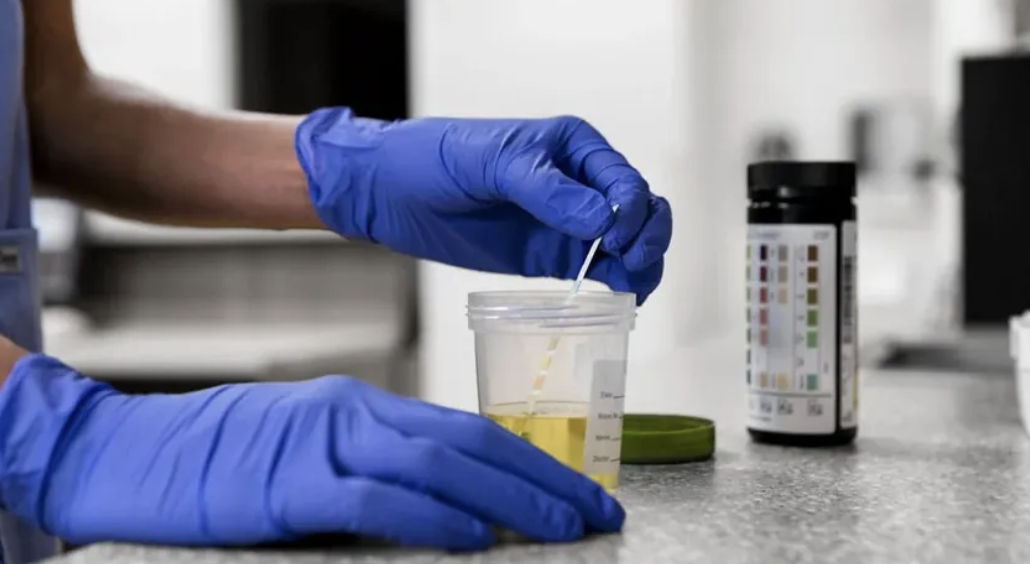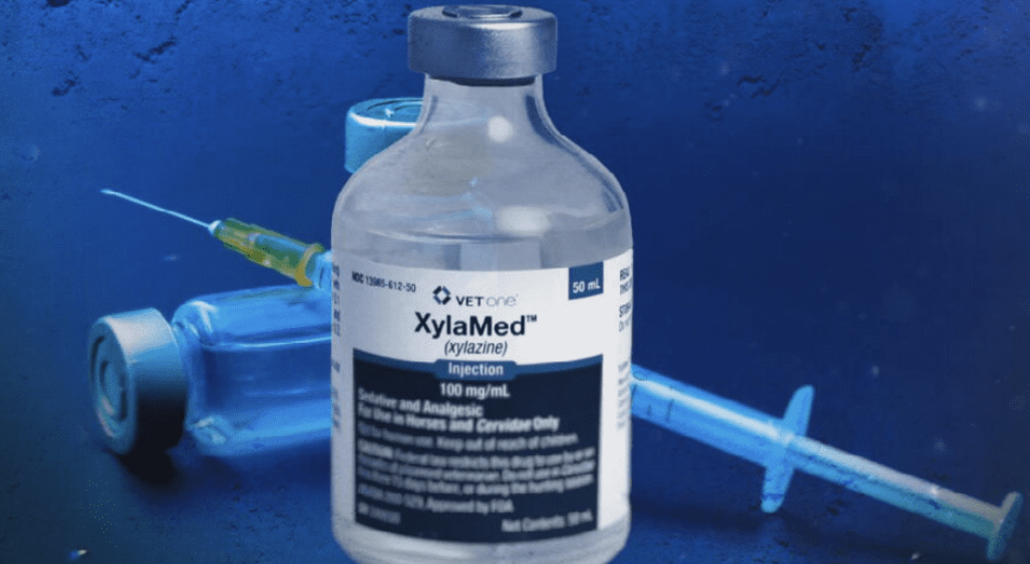Taking Suboxone with mental health medications can be safe but requires medical supervision. This article will cover safety concerns, potential drug interactions, and essential guidelines.
Key Takeaways
- Suboxone can be safely combined with mental health medications under professional supervision, but due to potential suboxone interactions, including sedation and serotonin syndrome, close monitoring is essential.
- Common psychiatric medications used alongside Suboxone include SSRIs, atypical antipsychotics, and mood stabilizers; however, their interactions necessitate vigilant monitoring.
- Patients are advised to maintain open communication with healthcare providers about all medications they are taking, including over-the-counter and herbal supplements, to minimize interaction risks.
Can you take Suboxone with mental health medications?
Yes, you can take Suboxone with mental health medications, but it must be done under careful supervision. This combination is not uncommon in the treatment of co-occurring disorders, where both opioid addiction and mental health issues need to be addressed simultaneously. Managing the risks and benefits with healthcare professional guidance is crucial.
Certain psychiatric medications, such as SSRIs (like Prozac and Zoloft), are commonly prescribed alongside Suboxone. These medications can help manage depression and anxiety, which are often present in individuals struggling with opioid addiction. Monitoring for potential side effects like increased sedation or serotonin toxicity is crucial, as these can be life-threatening if not properly managed.
You should inform your doctor about all the medications you are taking, including over-the-counter and herbal supplements, especially when considering what medications you cannot take with Suboxone to avoid dangerous interactions. This transparency helps avoid dangerous interactions and ensures that your treatment plan is safe and effective. Remember, alcohol should be avoided while taking Suboxone due to the risk of increased side effects.

What are the risks of combining Suboxone with psychiatric medications?
Combining Suboxone with psychiatric medications can lead to several serious risks. One of the most significant dangers is increased sedation and respiratory depression. This risk is particularly high when mixing suboxone with central nervous system depressants like benzodiazepines, antipsychotics, or sleep medications.
Additionally, there are risks of developing serotonin syndrome when taken with suboxone certain antidepressants. This condition can be life-threatening and requires immediate medical attention.
Another concern is the potential for heart rhythm issues, particularly when Suboxone is used with medications that prolong the QT interval. Proper monitoring and clinical oversight are essential to mitigate these risks.
Increased CNS depression
When Suboxone is taken alongside other central nervous system (CNS) depressants, the sedative effects can be significantly amplified. This can lead to extreme drowsiness, dizziness, and in severe cases, respiratory depression, which can be life-threatening. Benzodiazepines, antipsychotics, and sleep medications are common CNS depressants that, when combined with Suboxone, can cause enhanced sedation and impaired breathing.
Close monitoring for signs of excessive sedation and extreme sedation respiratory distress is essential. The combination of these medications requires careful dosage adjustments and frequent assessments to ensure patient safety. Healthcare providers must balance the benefits of treating both conditions against the potential risks of significant drug interactions.
Serotonin syndrome and antidepressants
Suboxone can interact with serotonergic antidepressants, such as SSRIs and SNRIs, increasing the risk of serotonin syndrome. This condition is characterized by symptoms like:
- agitation
- altered mental status
- high blood pressure
- rapid heart rate
- confusion It can be life-threatening if not promptly treated. Additionally, monoamine oxidase inhibitors may also contribute to similar risks. Suboxone interactions should be carefully monitored.
The risk of serotonin syndrome is particularly high when doses of selective serotonin reuptake inhibitors or norepinephrine reuptake inhibitors snris serotonin are excessive. Close monitoring for signs of serotonin toxicity is necessary for those taking these medications alongside Suboxone. Regular communication with healthcare providers helps manage these risks and allows for necessary treatment adjustments. Additionally, serotonin reuptake inhibitors SSRIs should be considered in the context of overall treatment.

Heart rhythm issues
Certain drug combinations with Suboxone can lead to heart rhythm abnormalities, specifically an elevated QT interval. Medications like:
- quetiapine
- methadone when combined with Suboxone, can increase the risk of significant heart rhythm disturbances. This necessitates careful monitoring of cardiac health, including:
- regular ECGs to track any changes in heart rhythm.
Patients on these medication combinations and other medications should be aware of the symptoms of heart rhythm issues, such as palpitations, dizziness, or fainting. Regular check-ups and effective communication with healthcare providers help mitigate these risks and ensure safe treatment.
Which mental health medications are commonly prescribed with Suboxone?
Combining Suboxone with mental health medications is a common practice to manage co-occurring disorders effectively. Some of the commonly prescribed medications include SSRIs, atypical antipsychotics, and mood stabilizers. Each medication has its own benefits and potential risks when used alongside Suboxone.
Medications commonly used in patients undergoing Suboxone treatment include:
- SSRIs like Zoloft and Prozac, often prescribed to treat depression and anxiety.
- Atypical antipsychotics like Abilify and Seroquel, used to manage symptoms of bipolar disorder or schizoaffective disorders.
- Mood stabilizers such as Lamictal and lithium, which help prevent mood swings in patients with bipolar disorder.
Monitoring patients for any side effects and adjusting treatment plans accordingly is necessary.
SSRIs (e.g., Zoloft, Prozac)
SSRIs, including Zoloft and Prozac, are frequently prescribed alongside Suboxone to manage depression and anxiety medication. At normal doses, these medications are generally considered safe, but excessive doses can lead to serotonin syndrome, a potentially life-threatening condition. Patients must be monitored for increased sedation and signs of serotonin toxicity.
Clear communication with patients and regular assessment for adverse effects are necessary. Close monitoring helps ensure that the treatment is both safe and effective, reducing the risk of serious health complications.
Atypical antipsychotics (e.g., Abilify, Seroquel)
Atypical antipsychotics, such as Abilify and Seroquel, are commonly used in patients with dual diagnoses of mental health disorders and substance use disorders. These medications help manage symptoms of bipolar disorder and schizoaffective disorders. However, combining these drugs with Suboxone can enhance sedative effects and increase the risk of respiratory distress.
Close monitoring for signs of excessive sedation and respiratory issues is crucial. Regular follow-ups and dosage adjustments are necessary for the safe use of these medications alongside Suboxone.
Mood stabilizers (e.g., Lamictal, lithium)
Mood stabilizers like Lamictal and lithium are often used with Suboxone to manage mood swings in patients with bipolar disorder. These medications generally have a low direct interaction with Suboxone, but caution is necessary to avoid lithium toxicity and maintain proper hydration.
Regular monitoring of lithium levels and hydration status ensures the safety and effectiveness of the treatment. Prompt communication of any side effects to healthcare providers allows for necessary adjustments.
How are patients monitored when taking both Suboxone and mental health meds?
Patients taking both Suboxone and mental health medications require careful monitoring to ensure the effectiveness and safety of their treatment. Standard protocols include:
- Baseline vitals
- Follow-up assessments
- Regular bloodwork, particularly for medications like lithium or valproate
- Symptom tracking
- Ongoing evaluations to identify any potential issues early on.
These monitoring protocols help healthcare providers make necessary adjustments to treatment plans, ensuring that patients receive the best possible care. Closely following these guidelines helps effectively manage the risks associated with combining Suboxone with mental health medications.
Medication reconciliation
Medication reconciliation is a critical process that involves:
- Reviewing all the medications a patient is taking to prevent dangerous interactions, including prescription medications, over-the-counter drugs, and herbal supplements.
- During intake, healthcare providers update patient records with current medications.
- Identifying medications that are no longer in use.
This process helps ensure that all medications are accurately documented, reducing the risk of harmful drug interactions. Regularly reviewing and updating medication lists allows healthcare providers to offer safer and more effective care for patients taking Suboxone and mental health medications.
Ongoing psychiatric evaluation
Regular psychiatric evaluations are essential for patients taking both Suboxone and mental health medications. These evaluations help assess a patient’s mental health status and medication responses over time. Psychiatrists or addiction specialists play a crucial role in coordinating treatment and making necessary dose adjustments.
Identifying changes in mood or behavior allows healthcare providers to tailor treatment plans to meet the evolving needs of patients. Collaboration between psychiatric and addiction treatment providers enhances the quality of care and supports sustained recovery.
Use of prescription monitoring programs
Prescription monitoring programs (PDMPs) are electronic systems that track prescriptions of controlled substances, helping clinicians identify potential overdose risks and prevent misuse of prescription medication. Regular review of PDMP data is recommended, especially when starting or continuing opioid therapy, to enhance patient safety.
These programs provide crucial information when patient medication histories are unclear or when patients transition between different healthcare providers. Interpreting PDMP data alongside other clinical information allows healthcare providers to enhance patient outcomes and ensure safe and effective treatment.

What are the benefits of treating mental illness while on Suboxone?
Treating mental illness concurrently with Suboxone can lead to improved overall stability and enhanced recovery outcomes. Addressing both opioid use disorder and mental health issues simultaneously can alleviate withdrawal symptoms, decrease stress and anxiety, and support sustained sobriety. This holistic approach ensures that patients receive comprehensive care, addressing the root causes of their conditions.
The benefits of this dual treatment approach are manifold, and exploring how Suboxone can help with mental health further supports the case for integrated treatment. Patients often experience improved mood to their treatment plans, reduced relapse risk, and a better quality of life. Stabilizing mental health better equips individuals to engage in their recovery journey and maintain long-term sobriety.
Improved treatment adherence
Stabilizing mental health can significantly improve a patient’s adherence to their Suboxone treatment plan. When individuals effectively manage their mental health, they are more likely to stick to their prescribed medications and counseling sessions. This consistency enhances treatment effectiveness, reducing relapse likelihood and improving overall health outcomes.
Patients who adhere to their Suboxone regimen are less likely to experience hospitalizations or emergency department visits. Consistent use of Suboxone reduces opioid use and associated complications, leading to better health and a more stable recovery journey.
Reduced relapse risk
Addressing mental health conditions during Suboxone treatment can significantly lower the chances of relapse by mitigating cravings and emotional distress. The combination of buprenorphine and naloxone in Suboxone provides a safety mechanism that deters misuse and reduces the likelihood of relapse. This dual approach maintains emotional balance, improves cognitive function, and enhances engagement in recovery activities.
Research indicates that patients who remain on Suboxone are significantly less likely to revert to opioid use compared to those who stop the medication. Stabilizing brain chemistry and addressing both physical cravings and psychological factors, Suboxone minimizes relapse chances and supports sustained recovery.
Are there alternatives if interaction risks are too high?
If the risks of combining Suboxone with mental health medications are too high, there are alternative options available:
- Healthcare providers may consider switching to different antidepressants.
- Using non-opioid medication-assisted treatments (MAT) like naltrexone.
- Incorporating therapy-first approaches depending on the patient’s profile.
These alternatives can help manage both opioid dependence and co-occurring conditions and co-occurring mental health conditions more safely. Working closely with healthcare providers helps explore these options and find the most suitable opioid addiction treatment plan tailored to individual needs.
Medication changes
Switching psychiatric medication classes, such as moving from SNRIs to SSRIs or norepinephrine reuptake inhibitors, can reduce the severity of interactions with Suboxone. This change requires careful monitoring and collaboration with healthcare providers to ensure that the new medication regimen is effective and safe.
Patients might consider alternative buprenorphine treatment formulations, such as Zubsolv or Subutex, which offer different benefits and potentially milder effects. These changes can tailor the treatment plan to better suit the patient’s needs while minimizing interaction risks.
Switching from Suboxone to another MAT
In some cases, transitioning from Suboxone to another medication-assisted treatment (MAT) like naltrexone or Sublocade might be preferred for patients with severe psychiatric interaction risks. Naltrexone, for example, is a non-opioid MAT that can effectively manage opioid dependence without the risk of opioid interactions.
Sublocade vs Suboxone is an important consideration, as Sublocade offers a more consistent therapeutic effect through monthly injections compared to daily dosing with Suboxone. This option can reduce the risk of misuse and help patients maintain a stable treatment regimen under the supervision of healthcare providers.
What should patients tell their doctor?
Effective communication with healthcare providers is crucial for safe and successful treatment. Patients should inform their doctors about:
- Their complete drug use history
- Substances used regularly and intermittently
- Typical dosages
- Any withdrawal symptoms experienced when not using
This information helps doctors tailor treatment plans to address the specific needs and risk factors of each patient.
Patients should also describe the methods of drug use, as different delivery methods can pose varying health risks. Discussing previous treatment attempts and their outcomes provides valuable insights for healthcare providers to develop more effective and personalized treatment strategies.
Bottom Line: Taking suboxone with mental health medications
Combining Suboxone with mental health medications can be a powerful tool in managing co-occurring disorders, but it requires careful supervision and monitoring. Understanding the potential risks and benefits, as well as maintaining open communication with healthcare providers, is essential for safe and effective treatment. By addressing both opioid use disorder and mental health issues simultaneously, patients can achieve better treatment adherence, reduced relapse risk, and an overall improved quality of life.
As you navigate your recovery journey, remember the importance of transparency with your healthcare team and the need for regular evaluations and adjustments to your treatment plan. This holistic approach can help you achieve lasting recovery and a healthier, more stable life.
FAQs about Suboxone and mental health medications
Can Suboxone cause or worsen depression?
Suboxone is not generally known to cause depression, as any depressive symptoms are typically associated with the underlying opioid use disorder rather than the medication. Therefore, it is important to consider the overall context of a patient's condition.
What if my psychiatrist doesn’t know I’m on Suboxone?
It is essential that your psychiatrist is informed about your Suboxone use to ensure safe and effective treatment, as this allows for better coordination of care and minimizes the risk of harmful drug interactions.
Are herbal supplements safe with Suboxone and psych meds?
Herbal supplements are not inherently safe with Suboxone and psych meds, as they can significantly alter the effects of these medications. It is vital to disclose any herbal supplement use to your healthcare provider to prevent adverse interactions.
What should I tell my doctor about my medication use?
It is essential to provide your doctor with a comprehensive history of your medication use, including regular and occasional substances, dosages, and any withdrawal symptoms you may have experienced. This information is crucial for your healthcare provider to make informed decisions about your treatment.
Are there alternatives if interaction risks with Suboxone are too high?
If interaction risks with Suboxone are too high, alternatives include switching to different antidepressants, utilizing non-opioid treatments like naltrexone, or opting for therapy-first approaches tailored to the patient's needs.
















